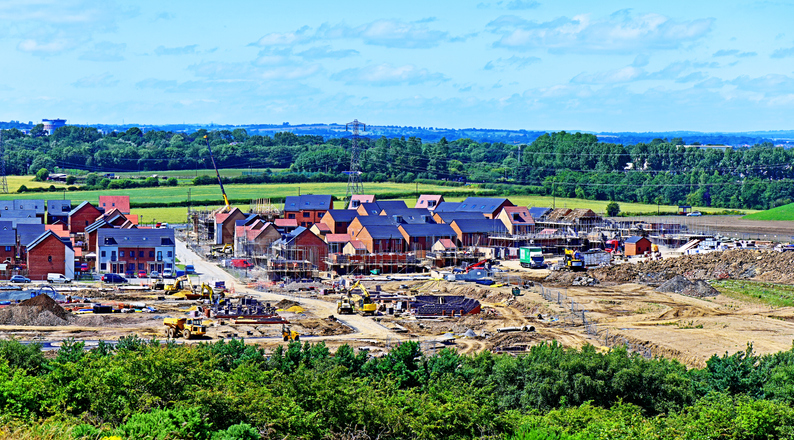The Supreme Court is ruling on 6 November in the Millgate Developments/Alexander Devine/Housing Solutions case.
In July of 2020 the Supreme Court heard the appeal of Housing Solutions Ltd in this restrictive covenant case. They own affordable housing at the site of the former Exchange House in Maidenhead. The respondent is the next door neighbour, the children’s hospice operator, Alexander Devine Children’s Cancer Trust, who have been supported with much enthusiasm and love by the Thames Valley’s real estate industry for some years now.
The case relates to the powers under s.84 of the Law of Property Act 1925 for an application to be made for restrictive covenants affecting land to be varied or released. The crux of the present appeal case is the “public interest” requirement on an application. That “condition” appears in section 84(1A)(b) of the Act: subsection (a) (the ground of claim that the covenant is ‘obsolete’) is not relevant to this case.
Restrictive covenants are everlasting legal rights (assuming that the elements for their imposition and perpetuation are all made out), so this s.84 statutory power to apply for a release or variation is of considerable use.
The history of the case is that in the Upper Tribunal, Millgate Developments (the original developer) succeeded in having the covenant released in return for compensation of £150,000 payable to the hospice. They were persuaded in part by the fact that the 13 dwellings in issue (10 more were not on covenant land) were much-needed affordable housing and were already built and ready for occupation: of benefit to the public in one obvious sense, and demolition would be a terrible waste, both socially and environmentally. Millgate sold the affordable houses to Housing Solutions. The court of appeal, however, held that the Upper Tribunal had applied the law wrongly, particularly on the matter of passing the “public interest“ test.
The Court of Appeal confirmed a previous case ruling (Re Bass’s Application), that the fact that the developer Millgate had obtained planning permission did not in itself mean that they had passed a public interest test, for the purpose of this section of the 1925 Act. While planning law assesses ‘public benefit’ in one sphere, that is not this sphere. The Court of Appeal applied considerable weight to the private law rights of the hospice under the restrictive covenants and criticised the developer Millgate’s approach in building the houses first and seeking a release of the covenants only later, as a defence once objection was made. For the Court, the conduct of Millgate therefore fed into the assessment of “public interest“, as it was held not to be in the public interest for private rights to be wilfully breached without lasting material consequences. Developers should carry the risk of knowingly choosing to build the houses before resolving the covenants situation, and ought to use s.84 of the Act in advance and not retrospectively.
The Court of Appeal confirmed that proving “public interest“ was a pre-condition to the right to a variation or release of covenant being considered, and not something which should be considered only when assessing the matter of compensation.
The Supreme Court‘s decision is due to be released on Friday 6 November. Landowners who are subject to restrictive covenants who would be interested in putting their land forward for development – and their lawyers and land agents – will be watching very closely, along with developers, and those involved in land promotion.
Clarifying the interpretation of the “public interest” ground is very important for those involved in land development, where a case for ‘obsolescence’ of the subject restrictive covenants cannot be made out.
If the release is still held to be struck down, then we will be watching closely to see if a demolition order is granted (as the Court of Appeal indicated that it would). If so, will it be seen through? Or will the hospice’s consent to retain the housing be ‘sold’ by them for a materially higher sum than the £150k first awarded?

